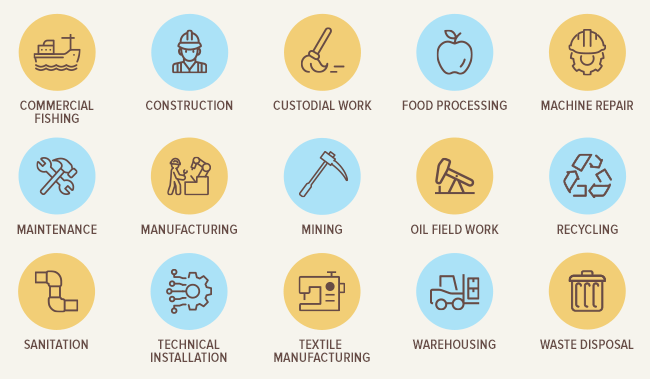
Whatever the motivation for the existence of a company, more significant profit margins, sustainability, or longevity, they owe their success to their workers. How sound the output of their workers is most often dictates how the company stands the test of time. According to labor and economic experts, we are experiencing blue-collar drought globally. This is why many companies find it difficult to keep their workers and find new ones.
Unfortunately, most of the time, companies tend to ignore the former or simply lack any human resources knowledge of how to do so. Here, we will explore who blue-collar employees are, how we can support them, and most importantly, how to motivate them.
Who are Blue-Collar Employees?
When we use the term blue-collar employee, we mainly refer to working-class people. But not all working-class people count as blue-collar. When we say blue-collar, we mostly mean people who perform manual labor, some of which are skilled and some of unskilled physical nature. It is seldom a job in an office setting.
Some examples of blue-collar jobs are mining, maintenance, warehouse laborer, construction worker, assembly worker, etc. Also, in many cases, a blue-collar worker earns an hourly wage, and it mostly depends on the actual hours of labor put in. Finally, the term blue-collar comes from the practice of wearing a blue uniform, as opposed to a white button-down shirt that white-collar workers wore in an office.

How can we support blue-collar workers?
Equipment
When your company deals with construction, the most basic way you can support your workers is by giving them the best safety equipment that you can. The same goes with any job where people use any tools. If you give them the most modern equipment, they will have the ability to perform their maximum.
Leave of Absence
Some jobs are intense and physically demanding, but the pressure to quickly finish a project might cause burnout among the staff. To preempt this, you have to consider the needs of your workers and when they need to take some time off.
Sure it might cost you some precious time in the short run, but in the long run, you will have lower turnover rates and keep a more skilled workforce on staff. In addition, an extra day off can go a long way regarding worker satisfaction.
Encourage Healthy Habits
There are a lot of detrimental factors that can affect blue-collar workers, things as obesity or chronic tobacco use. Therefore, it would be best to implement wellness activities, rewards, and regular annual health checkups. Encouraging healthy habits can be difficult, but you can motivate some to lead a healthier lifestyle by incorporating exercises into working hours or giving out wellness types of gift cards.

How can we motivate blue-collar workers?
A Competitive Salary
Sometimes this is all that you need to have a happy working force. The salary you pay to your employees shows how much you value their time and labor. If you offer a better than industry standard compensation, they are less likely to seek a job elsewhere. One of the most critical questions on a worker's mind when applying for a job or contract is "How much does it pay?".
Rewards
If you need a project done quickly, incentives are always a good idea. Please don't push your employees to the brink by threatening to terminate them. Instead, offer them rewards, ideally monetary, for their hard work and dedication. A cash bonus can always come in handy and show you appreciate their hard work more substantially. You can always use the data you have on your employees to personalize gifts if you have a tight budget.

Promotions
Many blue-collar workers don't want to stay in one position all their working life. The best way to retain those employees is to offer learning programs. Promote the most capable employees to supervisory roles. That way, you establish trust and loyalty to your company in the long run. It is always best to promote from within, as the employee already knows the company culture and work ethic.
Recognition
They and their peers always welcome any praise for a job well done. Blue-collar workers tend to value the opinion of their peers more than upper management. A formal recognition program can go a long way in making your workers feel appreciated. Teambuilding exercises where the topmost performing employee is recognized can be a powerful tool for keeping people motivated.
Conclusion
If we tap into what our workers want, need, and aspire to, we can motivate them and have better retention rates. This way, we will not lose our skilled workforce quickly. Treating them like they are disposable and easily replaceable will not do. You don't need to be creative in your approach. Sometimes just improving the working condition can do the trick. When you invest in your workforce, you will always have the edge over your competition. Unfortunately, as we mentioned earlier many countries are experiencing a shortage of blue-collar workers, so our attitudes toward that kind of work have to change.
